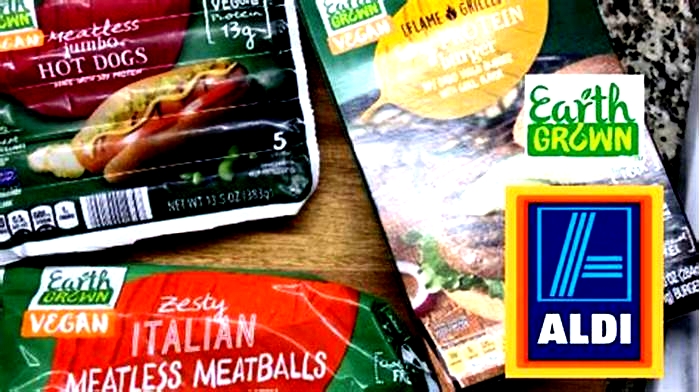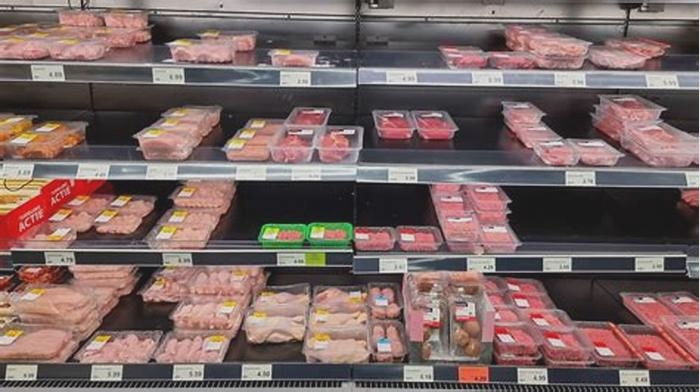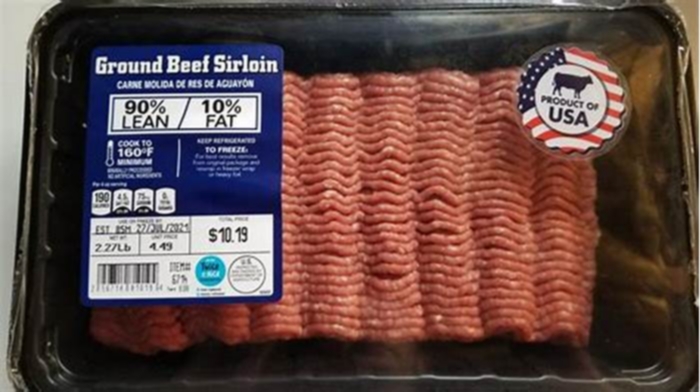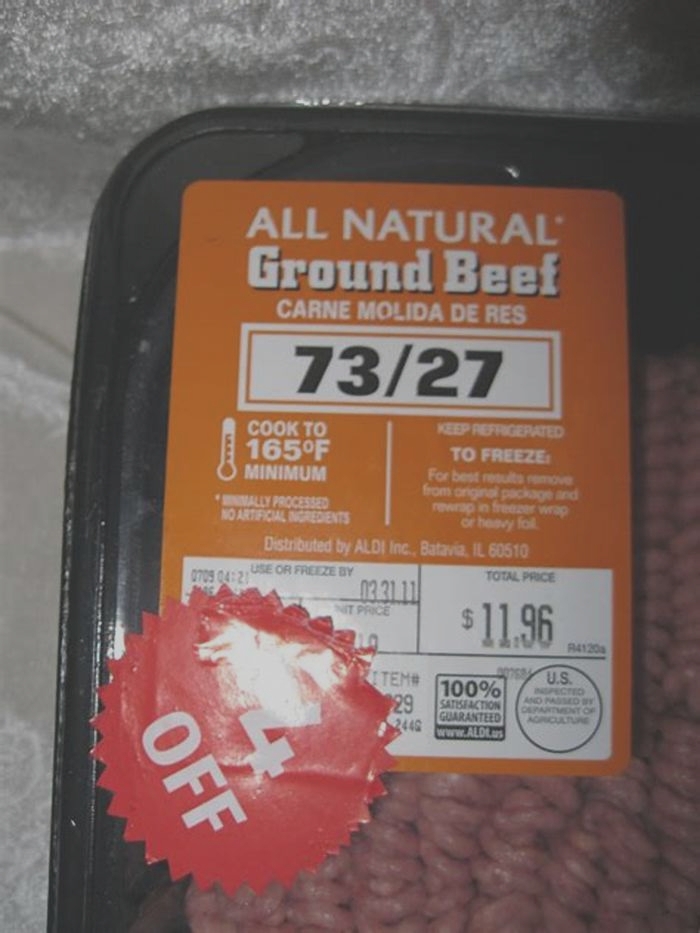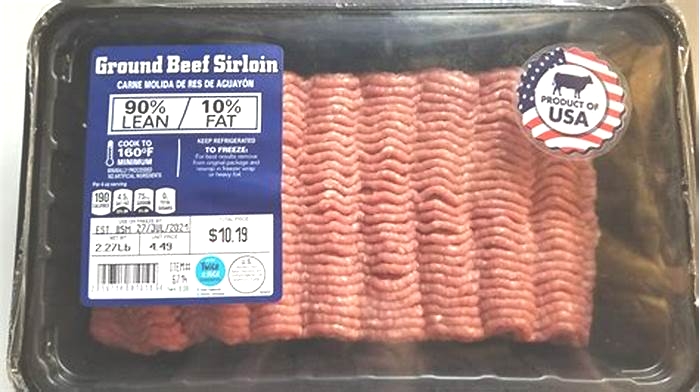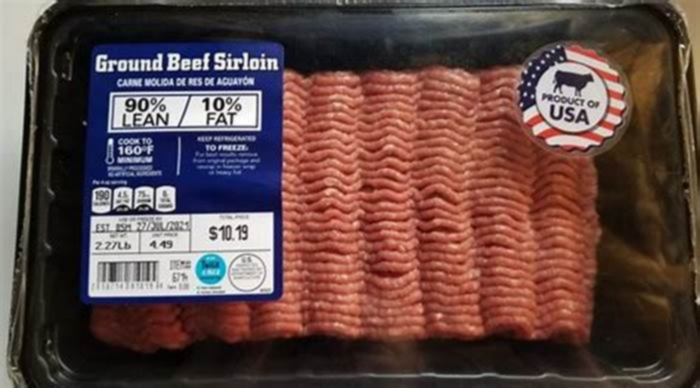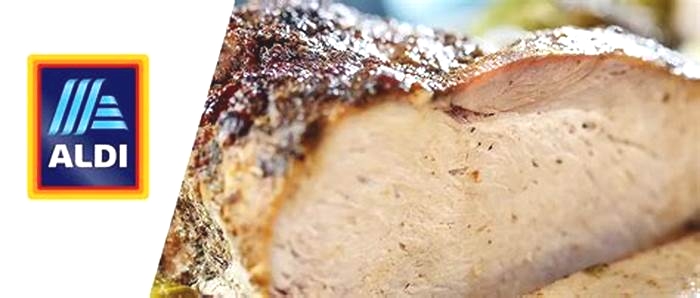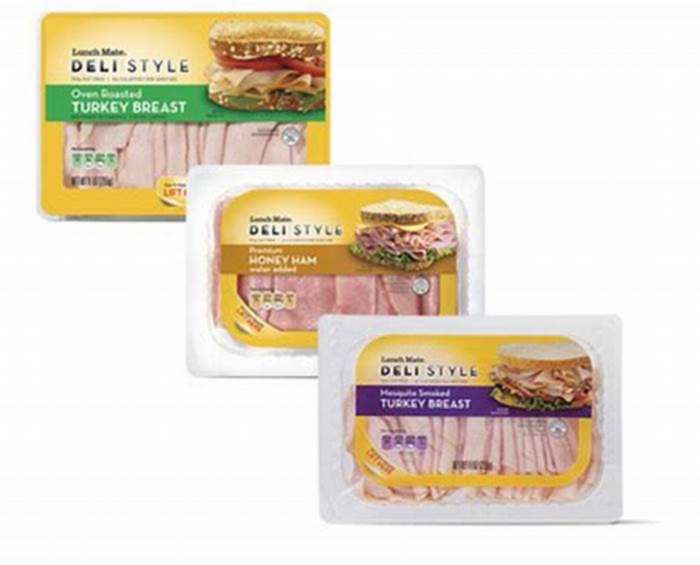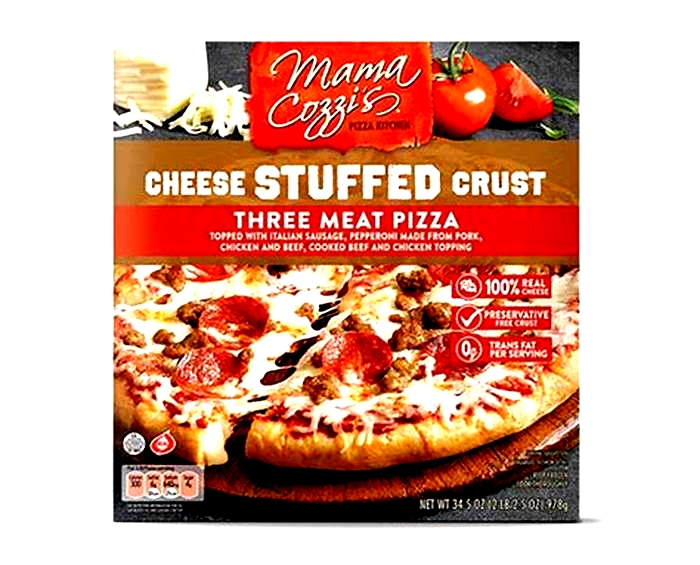aldi meat alternatives
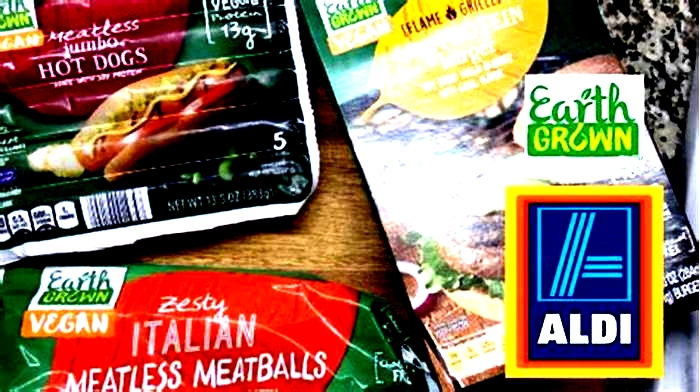
A Closer Look at Aldis Meat Sources (Beef, Chicken etc.)
Some of the items sold by Aldi are up to 50% cheaper compared to other major retailers. With such excellent prices, many people wonder how Aldi turns profits from the items they sell.
One main reason is where they source their products. This article will look at a commonly purchased product at Aldi, meat, and explain where it is obtained and why it is so cheap at these stores.
Read on;
Where Does Aldi Source Their Meat From?
Aldi mostly gets meat from regional farms. This is part of the plan to avail meat at low costs to customers. Getting meat close to the store that sells it reduces many costs, which is passed to the customers as affordable prices.

Who Supplies Meat to Aldi?
Aldi US does not list their beef supplier since different entities do it. Remember that beef in Aldi stores comes from cattle born, bred, and raised in the stores region, and with over 2,000 stores spanning 36 states, no single supplier can satisfy the huge demand.
However, Aldi UK lists some of its leading suppliers. Matthew Wright stands out as one of the leading suppliers for beef products, who delivers 100% British Farm Assured beef to stores.
Where Does Aldi Get Their Chicken?
Aldi gets its chicken from Tyson Foods. This chicken sells under the brand Kirkwood, and it includes breasts, thighs, wings, and drumsticks, among others.
Tyson Foods supplies Aldi with chicken, who then repackage it using their private label. Aldis Kirkwood chicken is Tysons chicken, with different names.
Where Does Aldi Organic Meat Come From?
Aldis organic line of products are sold under the brandSimply Nature. Aldi sources most of its organic beef from regional farms just as it does with non-organic meat.
Why is Aldi Meat So Cheap?
Aldi sells a wide variety of meat at cut prices. For instance,73% Lean Ground Beef (Fresh) costs $2.49 per pound, and Angus Ground Beef(93% Lean) is available at $5.49 per pound.Simply Natures Beef Stew Meat( 100% organic) costs $6.99 per pound.
These are a few of the meat prices at Aldi, and you can check out their page for more varieties. Aldi manages to sell their meat so cheap, partly because of their larger business model, which aims to give customers commodities at a low price. Other reasons include;
- Aldi buys meat from regional farms, avoiding big brands and lowering costs. Regional purchases mean less is spent on transport and the workforce required to prepare and get the meat to stores.
- Aldi repackages their meat under their privately sold brand, so no money is spent on endorsing more prominent brands.
- Aldi stores run very efficiently with limited staff members(between six and eight) who always multitask to keep things running smoothly.
- Aldi offers fantastic deals to customers who buy products in bulk. As such, Aldi sells volumes and frequently restocks, which allows them to get small margins but make it up in volumes sold.
Does Aldi Import Their Meat?
Most of Aldis meat is sourced locally, but this is not always the case, and some of it is imported.
Does Aldi Meat Come From China?
No. Aldi does not get any meat from China. It sources imported meat from Australia, Canada, Mexico, or New Zealand.
Customers should not worry about buying meat from China since thelaw states that products, including food, made outside the United States should clearly label the country they are produced in.
In addition,Aldis website states that they clearly label any product made outside the United States with the country of origin per the law.
Is Aldi Meat From Australia?
Part of the imported meat sold at Aldi comes from Australia. However, this is a tiny percentage of the meat sold in the United States, as most of it is sourced locally.
When Does Aldi Get Meat Delivery?
Aldi restocks meat in their stores on Wednesday morning. Note that it also depends on the store and the available stock. However, this is the best time to rock up to a store near you for excellent meats and many more deals.
What Types Of Meat Does Aldi Sell?
Aldis meat collection includes;
- Fresh chicken
- Fresh Beef
- Ground beef
- Steak
- Corned beef brisket
- Chicken breasts and thighs
- Sausages
- Cold cuts
- Chicken drumsticks
- Ground turkey
- Fresh pork
- Pork chops
- Fresh salmon
- Tilapia fillets
Is Aldi Meat Good Quality?
Aldis meat is good, but again this depends on the specific type you are looking for. Do not assume that Aldis low prices and lack of household brands directly translates to lower quality meat. This is done to enable the store to sell meat at lower prices, and the quality is just the same as what other grocery stores offer.
One standout type of meat that has consistently received rave reviews at Aldi is Aldis USDA choice meats and Black Angus beef.USDA Choice is only given to meats that attain high-quality standards and is the second-best grade of meats available in the markets. The best grade is USDA Prime.
Black Angus meat refers to cuts obtained from cows that meet specific genetic requirements and have hides that are more than 50% black. This meat is known to be juicy and well-marbled.
So, Whats The Problem With Aldi Meat?
Aldis meat is excellent, but a few issues in the past years have made a few customers think twice about buying it from them.
While Aldi checks meat to ensure it lives up to its quality standards, it does not always happen. There have been instances where Aldi has recalled a few products from its meat collection in the past due to issues with its suppliers.
For instance, in2018, in association with Cargill Meat Solutions, Aldi recalled a few beef products that might have been contaminated.
Such cases do not spur confidence in customers, and some of them choose to skip the meat section at Aldi.
Does Aldi Sell Meat Alternatives?
The meat alternatives available at Aldi include;
- Meatless meatballs
- Veggie burger
- Meatless veggie crumbles
- Chickenless strips
- Eggplant fries and cutlets
- Vegan mozzarellas
- Vegan meatless turkey breast
- Vegan flavor mac and cheese
Frequently Asked Questions?
Does Aldi Sell Organic Meat?
Yes. Aldi has a collection of organic meat available to interested buyers. This line of meat is brandedSimply Nature and contains USDA inspected, 100% grass feed beef at affordable prices.
Does Aldi Sell Gyro Meat?
Yes. Aldi sellsGyro meat.
Does Aldi Sell Horse Meat?
No. Aldi does not sell horse meat. The controversy surrounding Aldi and horsemeat came about when some of its beef products contained up to 100% horsemeat. This scandal only affected stores in Europe, but it has since been cleared.
Is It Safe To Buy Meat From Aldi?
Yes. Aldi meat is USDA certified, and the company carefully inspects meat from suppliers before delivering it to their stores. Aldi lives by the slogan, quality does not have to come at a high price and delivers the best quality meat to customers.
Does Aldi Sell Halal Meat?
No. Aldi meat products are not Halal certified. However, it sells a wide variety of Halal products.
Does Aldi Have Vegan Meat?
Yes. Aldi sells vegan meat.
Conclusion
Aldis discount is a popular chain of stores where customers flock to buy a wide variety of items, including meats. There have been reports regarding the quality of beef available at Aldi, given the low prices, but we have cleared this and assure you that Aldis meat is safe. While quality can vary depending on the specific type of meat you want, the ones available at Aldi are certified, and many customers attest to this.
ALDI Vegetarian List
ALDI Vegetarian List A shopping list for meat free budget foods to look out for at ALDI Supermarket.

ALDI Vegetarian List
Its a myth that you have to spend a fortune when youre following a meat free diet. Not only are many vegetarian friendly foods also budget friendly, but shopping at stores like ALDI can really help you save even more.
In this post youll find the definitive ALDI Vegetarian List of items to pop on your shopping list and look out for the next time youre at ALDI. This is useful whether youre a vegetarian, thinking about become a vegetarian or just wanting to incorporate more meat free meals in your diet.
Important Note: If youre vegetarian, or shopping for someone who is, just be sure to read the ingredients carefully to ensure the product is vegetarian. (And best to do so regularly as ingredients can change on old favourites.)
ALDI Vegetarian Shopping List
Fruit & Vegetables

Lets start with vegetarian staples fruit and vegetables. In season fruit and vegetables will always be more budget friendly. Here are some staples to choose from:
- Spinach
- Mushrooms (For this mushroom & cabbage casserole)
- Cabbage
- Tomatoes
- Peppers/Capsicum
- Onion
- Garlic
- Broccoli (For this broccoli salad)
- Cauliflower
- Cucumber
- Lemon & Lime
- Berries strawberries, raspberries, blueberries
- Kiwi
- Orange
- Banana
- Stone Fruit (when in season) peaches, nectarines, plums, apricots
- Mangoes
- Sweet Potatoes
- Potatoes
- Carrots

In my ALDI, there are weekly specials where 6 fruit and veg items are reduced to as little as 49 cents.
On the week I visited, the super 6 included:
- Grapes for 79 cents
- Sugar Snap Peas for 49 cents
- Bananas for 79 cents
- Pears for 79 cents
- Cherry Tomatoes for 49 cents
- Green Beans for 49 cents
I tend to start by loading my trolley with the above in season produce and then working my weekly menu around the budget bounty. I then explore the store and make up the rest of my meals with whatever looks appealing.
You can go online and find your local ALDI and whats on special in your area and then plan your shop and meals accordingly.

Also head to the frozen fruit and vegetable section for produce to enjoy in smoothies, ready to go stir frys and other vegetarian dishes.
Dairy

ALDI is awesome for dairy staples. You can get budget friendly items including:
- Milk
- Cheese
- Yoghurt
- Sour Cream
- Cream
- Butter
Protein

There are loads of options for protein at ALDI stores, heres what I found at my local supermarket:
- Eggs (If you include them in your diet)
- Nuts & Seeds
- Chia Seeds (how to make chia puddings)
- Peanut Butter
- Beans & Legumes
- Meat Substitutes Burgers, Sausages, Mince
- Falafel
- Protein Powder
- Non Dairy Milk
- Tofu & Tempeh
Click here for more information about how to get protein as a vegetarian.
Carbs

If you include carbs in your diet, there are plenty to be found at ALDI. Here are some ideas:
Baking & Cooking Essentials

I regularly find flours and powders to help with baking, creating sweet treats and general cooking:
- Cocoa Powder and Cacao Powder
- Chocolate
- Coconut Flour
- Ground Almonds
- Baking Nuts
- Flour wholemeal, plain, spelt
- Sugar/Honey/Maple Syrup
- Jam & Preserves
- Coconut oil, shredded
- Avocado Oil
- Extra Virgin Olive Oil
- Sesame Oil
- Soy Sauce/Tamari
- Stir Fry Sauce
- Stock Cubes & Fresh vegetable stock
- Herbs & Spices
- Salt & Pepper
- Apple Cider Vinegar
- Tomato Sauce
- Tinned Tomatoes
- Pasta Sauce
- Coffee, Tea, Hot Chocolate
Vegetarian Snack Foods

If you include snack foods in your diet, here are some vegetarian friendly snacks to look out for at ALDI:
- Popcorn
- Chocolate
- Lentil Chips
- Crisps/Chips
- Roasted Nuts/Seeds
- Rice Cakes
- Sultanas, Raisins & other dried fruit

As you can tell, the ALDI Vegetarian List of foods is really comprehensive and you can easily eat a meat free diet or just enjoy more vegetarian foods on a budget.
More Vegetarian Diet Inspiration:
7 Vegetarian Breakfast Ideas
7 Vegetarian Lunch Ideas
15 High Protein Vegetarian Snacks

Subscribe to receive the FREE weekly newsletter, packed full of easy recipes and food inspiration plus exclusive, subscriber only content.Click here to Subscribe by Email.
Disclaimer this post is meant for informational post only and should not be construed as medical advice. Please consult with your health professional before making any dietary changes.
Disclosure this post contains affiliate links.
Plant-based meat alternatives: what are your options?
Meat is a traditional part of the UK diet, and with good reason. Its packed with high-quality protein, iron and B-complex vitamins. It also contains micronutrients essential for human health, such as zinc, selenium and phosphorous.
Evidence is building, however, that high meat consumption is not so great for the environment, due to the amount of land needed to grow animal feed and the fact these crops can use scarce freshwater resources. Plus, cows and sheep in particular have relatively high greenhouse gas emissions that contribute to climate change.
Research indicates that, in most cases, plant-based diets have less environmental impact than those based on meat. When we asked Which? readers about their diets, more than half said theyd cut down on meat compared with 10 years ago. Nearly a quarter said their main motivation for this was environmental, sustainable or ethical.*
In the UK, the choice of plant-based meat alternatives has boomed in recent years. You'll now find products that aim to recreate the taste and texture of meat, as well as more traditional alternatives.
Read on to find out more about vegan and veggie meat substitutes, including how to cook them, which are the healthiest and which have the lowest environmental impact.
*July 2021 survey, 1104 respondents
Tofu, tempeh, seitan and more
While newer plant-based alternatives increasingly try to mimic meat products (for consumers cutting down on meat or switching to flexitarian diets), there are plenty of plant-based products you can use instead of meat that don't necessarily have a meaty taste or texture.
Most are relatively high in protein, and are based on either soya (tofu and tempeh), mycoprotein (fungi, best known as branded Quorn) or wheat gluten (seitan).
The cheapest way to buy tofu is as a plain block, typically costing between 1.70 and 2 for around 300g (Tesco Wicked Kitchen, Sainsbury's SO Organic, The Tofoo Co). This is about right for three servings. A similar weight of lean mince or bacon costs around 1.50.
As with many foods, you pay for more processing, such as marinating, dicing and added flavours. For example a 200g block of smoked Taifun tofu with almonds and sesame seeds will set you back around 3.50.
Tempeh and seitan remain less mainstream and pricier for the time being. Buying online gives the best selection, as most these products still aren't stocked that widely in supermarkets.
Tofu
What is it? Tofu has a long history, with written records in China of tofu-making going back more than 2,000 years. Also known as bean curd, its made from soya beans and water, plus a coagulant to hold it all together. Firm tofu is the most commonly used type in the UK, but softer silken tofu is also an option.
How healthy is it?Tofu is quite high in protein (about 13%) and contains all nine essential amino acids. Its low in carbohydrates and contains about 7% fat. If you buy tofu with seeds or nuts added, this boosts the healthy fat and protein content. Tofu also contains calcium in a significant enough amount to be a good boost for vegans. It also has useful quantities of iron, manganese and phosphorous.
How versatile is it?Firm tofu is bland, but responds well to being marinated, then fried. Its possible to buy tofu pre-marinated, ready for throwing into a stir fry or curry with your veg, nuts and noodles. Smoked tofu is another option. You may find it mixed with seeds (for example, Taifun). This can be sliced and used straight from the pack in sandwiches, or as part of a salad a good alternative to cheese.
Silken tofu (brands include Clearspring, Yutaka) is unpressed, which means its higher in water, lower in protein and has a soft, creamy texture. Soft silken tofu is good for desserts or for giving a protein boost to smoothies.
Tempeh
What is it? Tempeh is a traditional Indonesian fermented food, made of soya beans and a fungus called Rhizopus. It tends to be chewier than tofu and has an earthy flavour. Like tofu, it really needs to absorb other flavours to make it tasty.
How healthy is it? Tempeh is very high in protein around 19%. It's also high in fibre (about 9%) and has around 10% fat. It can be a good source of B vitamins. Its fermented which can make it easier to digest. It also contains probiotics - live bacteria that can help to improve or restore the natural balance of gut bacteria.
How versatile is it?Tempeh is usually sold as marinated pieces, whole blocks (plain or flavoured) or as patties. If you go for the plain type, cube it and marinate before steaming, baking or frying. Brands include The Tofoo Co, Plant Power, Better Nature and Impulse.
Mycoprotein (such as Quorn)
What is it? Mycoprotein isnt technically plant-based as its made from the mycelium of naturally occurring fungi. These are long thread-like structures that grow underground. Mycoprotein has been available in the UK since 1985 under the brand name Quorn, and is one of the most well-established vegetarian meat alternatives.
How healthy is it? Mycoprotein is around 11% protein, contains all essential amino acids and has a decent amount of fibre too (5-10%). Its low in fat, sugar and salt, and is a good source of calcium. It also works as an alternative for people allergic to soya. Vegans should note that egg or milk is often added to improve the texture of mycoprotein products.
How versatile is it? While tofu can be bought in a block and added to home-cooked meals, mycoprotein often comes as the main ingredient in pre-prepped fast foods such as sausages, burgers and breaded nuggets. You can also buy it in small pieces, which you might use in place of chicken pieces and as mince, for making things such as meat-free spaghetti bolognese or shepherds pie.
Quorn also sells fish-free seafood substitutes including fishless fingers, fillets and scampi.
Seitan
What is it?Sometimes called wheat meat, mock meat or listed as vital wheat gluten in ingredients info, seitan consists of wheat gluten and water. Its a traditional component of Asian and Buddhist diets, and generally has a meatier texture than tofu or tempeh. Its mild, savoury taste means youll need to add flavour via marinating.
How healthy is it?Seitan is very high in protein up to 20%, but it doesnt contain the full range of amino acids (its missing lysine), which can be remedied by eating pulses or nuts alongside it. Its low in fat and contains 9% carbohydrate. If youre allergic to soya, then seitan can still be on the menu. If youre sensitive to gluten, however, steer clear.
How versatile is it?Seitan wont jump out at you from the supermarket shelves, unless you go to Waitrose which stocks seitan burgers, koftas and slices. Ocado sells seitan in jars (Biona brand), marinated in ginger and soya sauce, for adding to stir-frys or salads. Go online and theres more choice: LoveSeitan makes seitan pepperoni for people who want a meaty vegan kick on top of their pizzas.
Vegan mince, bacon and chicken pieces
There are increasing numbers of plant-based alternatives to supermarket staples such as mince, bacon and chicken, as well as processed foods such as meatballs, burgers and sausages.
Many of these processed products are made of soya beans or a mix of plant-based proteins, but don't come under the banner of tofu or tempeh.
Youll often find the term textured vegetable protein, or something like it, on the ingredients list. For example, Linda McCartneys vegetarian sausages are made of textured soya protein, and Cauldron Cumberland sausages are made with textured vegetable protein, which includes soya and wheat.
Some products mix in pea protein with the soya, such as This Isnt Bacon and Moving Mountains burger.
Others major on pea protein, and swerve the soya completely: for example, Tescos Plant Chef Cumberland Style Bangers, Meatless Farms burgers and sausages and Beyond Burger.
The peas in question are yellow split peas, rather than green peas. These are high in protein and have a usefully neutral taste, so strong flavouring isn't needed to disguise unwanted flavours. They're even used in sweet foods such as the vegan Magnum.
Jackfruit: the unlikely meat substitute
Out on a limb when it comes to meat alternatives is the intriguing jackfruit that has lately been turning up on restaurant menus, in ready meals and among the cans on supermarket shelves. It's often used as a substitute for pulled pork.
What is it? Jackfruit is a large tropical fruit native to Asia with a stringy texture and neutral flavour. The unripe fruit is starchy and savoury, and has a meaty mouthfeel.
How healthy is it?Like most fruits, the jackfruit is largely carbohydrate, so its not a great protein source compared with meat, mycoprotein or soya-based foods. It is, however, a good source of vitamin C and also contains B vitamins. Its very low in calories.
How versatile is it? Jackfruit can be found in most supermarkets. The pale young flesh is sold canned, preserved in brine. However, if you choose to make a meal of it, youll want to bulk it out, as a whole tin is only 42 calories. Some supermarkets also sell jackfruit in veggie ready meals, such as curry and chilli. Head online, and you can find it sold by The Jackfruit Company in a darker-coloured dried form thats readier to absorb flavours.
Advanced plant-based food: Beyond Burger, Impossible Burger and more
The new wave of vegan meat alternatives is largely aimed at meat lovers looking to switch for environmental reasons to a more flexitarian or meat-free diet. These products aim to closely mimic the taste, texture, look and cooking qualities of meat.
It started with burgers, but has swiftly expanded to sausages, meat pieces and even fish such as salmon and tuna.
While big brand burgers kickstarted the trend (take a look at key players below), supermarkets are jumping in with cheaper own-brand offerings such as Co-ops GRO - The Incredible Burger and Sainsburys Ultimate Plant Burger.
How are advanced plant burgers made?
Common ingredients of these newer-style burgers are soya beans or peas, wheat, coconut oil and beetroot juice. In order to achieve the meaty texture, these ingredients have heat and pressure applied, that together denature (change permanently) the natural plant proteins and create fibrous protein structures that more closely resemble those in meat.
Plenty in our vegan burger taste tests found this convincing, but one criticism levelled at these new-style products is that they're a type of ultra-processed food, and therefore aren't necessarily healthier than the original.
The Beyond Burger
What is it? Hailing from the US, and now available in McDonalds as well as supermarkets, this is a plant-based patty crafted from split-pea protein, mung beans and brown rice protein. It contains no soya protein. For fat, it uses canola oil, coconut oil and cocoa butter. Its red hue is supplied by beetroot juice. This is meant to make it look more convincingly meaty, so it's not one for the squeamish.
How healthy is it? The Beyond Burger is around 17% protein, including all nine essential amino acids. It is a good match for a regular burger with the bonus of less saturated fat. Its low in carbs (about 3%) although not as low as meat. However, its undeniably highly processed and contains 18 separate ingredients.
Moving Mountains Burger
What is it? UK brand Moving Mountains has produced a plant-based patty based on pea and soya protein, which also contains mushrooms and wheat gluten. It uses coconut oil for fat and beetroot juice for colour.
How healthy is it? This burger is 14% protein, about the same as a regular burger, but less than some veggie burgers: a Linda McCartney soya burger and the Beyond Burger both have more. This burger gives you a hefty dose of saturated fat because of its reliance on coconut oil. Its also highly processed and contains a whopping 21 ingredients.
Impossible Burger
What is it? The Impossible Burger is a soya-based phenomenon from the USA that's made plenty of headlines. There, its available in supermarkets as well as the likes of Burger King and the Hard Rock Cafe, but it hasnt reached UK shores yet.
How healthy is it? Its high in protein, and has about half the fat of a regular burger, although only a little less saturated fat. It's not available in the UK as it contains soy leghemoglobin. This is made by a genetically modified yeast, and enables the burger to bleed as if it were beef. Leghemoglobin has been approved by the US Food and Drug Administration (FDA) but, as yet, the Food Standards Agency has not licensed it for consumption in the UK.
Plant-based fast food- see what vegan options Mcdonalds, Burger King and KFC offer and how they compare
Are plant-based meat alternatives healthy?
Plant-based foods aren't made equal, so you can't assume they are healthy just because they include plant-based ingredients.
In fact, the likes of Beyond Burger and Moving Mountains have a long list of ingredients, which is often an indication of ultra-processing, and a food thats many steps away from the original wholefood. The plain versions of tofu and tempeh are simpler, consisting of soya beans, water and little else - a firming agent in the case of tofu and, for tempeh, the inoculated fungus, Rhizopus. The most basic seitan we've come across has a few more ingredients alongside wheat gluten, such as chickpea flour and flavouring.
Processed or fast food has its place in busy lives when convenience is high priority. But theres no denying that the healthiest diets are those that are based on unprocessed wholefoods. Preparing vegetables from scratch, adding in wholegrains, beans, seeds and nuts and keeping ingredients such as salt and sugar to a minimum all comes highly recommended by nutritionists.
Manufacturers are recognizing this, and there's a move towards simplifying products to make them more appealing to those wanting something less processed, without losing the taste and meaty texture. Ultimately, it's worth approaching plant-based burgers the same way you would the real thing - to be eaten in moderation.
Traditional vegetarian-style bean burgers - which don't try to mimic meat - undergo less processing, contain more wholefoods and tend to be healthier. For example Sainsburys spicy bean burgers cost just 1.75 for four 'quarter-pounders' and contain a wider range of vegetables than Sainsbury's Plant Pioneers - meat mimics that will set you back 2 for two smaller burgers.
Soya and health
Soya has, from time to time, hit the headlines with scare stories that have linked its consumption to an increased risk of breast cancer or hormonal issues in men. Cancer Research UK states that there is no good evidence that eating soya products increases or decreases cancer risk. And while soya products such as tofu contain isoflavones, which are like a mild version of the human hormone oestrogen, there's no valid evidence that they have any unwanted effects on men.
Soya is, however, a good plant source of protein and calcium, and there is evidence that diets rich in soya may help lower LDL (bad) cholesterol.
Nutritional comparison: beef burger vs plant-based alternatives
In the table below, weve highlighted how a regular beef burger stacks up nutritionally against a range of plant-based burgers.
In terms of calories and fat, meat tops the table, but Moving Mountains' plant-based burger delivers the heftiest dose of saturated fat. A soya-based burger gives the biggest protein hit, plus a decent amount of fibre, but its also the highest in salt.
Table notes:1Since the weights of the burgers vary, quantities listed are per 100g to enable direct comparison.2 Soya and wheat are among the 14 allergens listed by the Food Standards Agency that must be highlighted on labels. Seitan is made of wheat.
Which? nutritrionist Shefalee Loth says: Many people assume that plant-based burgers are healthier than their meat alternatives, but thats not always the case. The Moving Mountains burger contains more than twice as much saturated fat as a beef burger per 100g. Its also important to appreciate that beef is a good source of iron and other nutrients that many of these plant-burgers wont contain.
How environmentally friendly are plant-based meat alternatives?
Meats sustainability credentials have been increasingly under the spotlight in recent years. A much-quoted study (Poore and Nemecek, 2018) estimates that 14.5% of anthropogenic greenhouse gas emissions come from meat production alone.
While this report quotes a global average, and the UK fares much better in terms of the environmental impact of the meat it produces, most experts agree that consuming less meat and more plants is beneficial for the environment at various levels.
Eating plants removes the extra step of feeding plants to animals, and the land, water and other resources used in raising animals, such as antibiotics, are not required.
But comparing plant-based alternatives for sustainability is far from straightforward.
Soya
For many years soya beans have been a cause of deforestation in Brazil and other tropical areas, which has given the bean a bad reputation. However, soya-driven rainforest destruction has mainly been for the production of animal feed.
In the UK, the WWF highlights Tesco and Waitrose as the two supermarkets showing the most commitment to sustainably sourcing soya. Iceland and Morrisons are at the bottom of this list. Many plant-based brands, including Cauldron, Taifun and The Tofoo Co state that they source their soya beans in Europe or Canada.
Mycoproteins, wheat, beans and peas
Creating mycoprotein does not use up as much land or water as meat production, but it is quite energy intensive. This contributes to greenhouse gas emissions if the electricity does not come from renewables.
Studies of lifecycle analyses for various protein sources see wheat, beans and peas emerge favourably in most sustainability measures, with fewer greenhouse gas emissions, and lower land and water use per gram of protein produced.
A-Z guide on decoding food labels - how to make sense of sustainability, welfare and safety certifications
Is cultivated or lab-grown meat the future?
Cultivated meat which also goes by names such as lab-grown, cultured or clean meat has had a fair bit of publicity of late.
Cultivated meat is made using tissue culture techniques: a few cells from an animal, such as a cow, are nurtured in a liquid growth medium. Here, fed by nutrients, hormones and growth factors, they differentiate and mature into muscle fibres and fat cells, while being supported within an edible structure that holds them in place. The resulting tissues can be processed into burgers, sausages, mince and so on.
There are plenty of potential benefits of this technology over traditional animal raising. Less land and water are needed, and greenhouse gas emissions should be lower. Animal welfare issues and antibiotic use would be virtually nil.
However, there are formidable barriers too. One of these is the technologys potential to produce meat in the quantity needed at a price people will pay. Another big unknown is how much energy it would use. A recent study estimated that energy use would be less than that needed to produce beef, but potentially more energy-hungry than conventional poultry production.
Even if the technical challenges are overcome, would people want to eat it? Which? members are divided. In our survey, a third said theyd definitely try it, nearly a half thought they wouldnt, while the remainder were on the fence*.
If youre one of those on the fence, theres probably no rush to make a decision. Even if the technical challenges are overcome, safety and regulatory issues will need to be addressed before cultivated meat can arrive on plates in the UK.
Currently Singapore is the only place where one kind of cultured meat - chicken nuggets made by the US-based company Eat Just - has been passed for sale by the countrys national food agency.
*July 2021 survey, 1104 respondents
How to buy sustainable fish - our guide to planet-friendly swaps and which fish are the least sustainable
How to cook plant-based foods safely
While theres less risk of food poisoning with plant-based meat alternatives, its still worth being aware of what to look out for, especially if you're new to foods such as tempeh, seitan or tofu. The packaging will be your best guide, but here are some tips:
- Tempeh - Should be kept in the fridge and consumed before its use-by date. Fresh tempeh smells mushroomy. If you get an ammonia or alcohol whiff, then its going off. White mould on the outside is normal, but if your tempeh is mushy, slimy or crumbly, rather than firm, you should bin it. Tempeh is suitable for freezing for up to a couple of months.
- Tofu - Smell is again your best guide for judging tofu freshness. Fresh tofu hardly has a smell, so if it smells sour, then its going off. Tofu often has a use-by date of a couple of months. It should be refrigerated and kept in an airtight container once its been opened. You can also freeze tofu, either as a whole block or chopped into chunks, but expect it to be chewier when you come to eat it.
- Processed plant proteins -Most processed plant or mycoprotein-based foods, such as burgers and sausages, are sold chilled or frozen. As with any foodstuff, follow the storage, handling and cooking instructions, and consume by the use-by date.
You may come across veggie burgers and sausages (for example Linda McCartney chilled range) that are unsuitable for freezing.
The company advises that this is because they were frozen as part of the production process, so should not be re-frozen after purchase.

